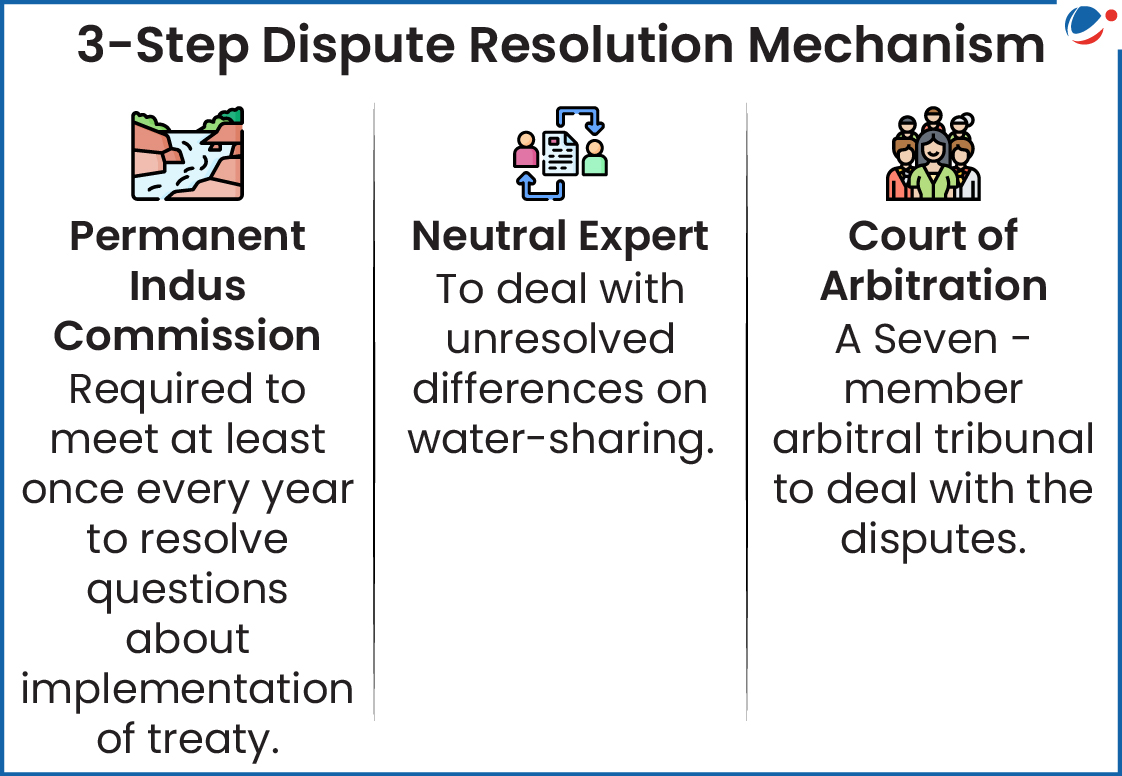The Hague-based CoA's Ruling: Held that India holding the IWT “in abeyance” does not affect its authority to rule on the disputes regarding India’s Kishenganga and Ratle hydroelectric projects in Jammu & Kashmir.
- Following the 23 April 2025 terrorist attack in Jammu and Kashmir, India declared the Indus Waters Treaty "in abeyance" until Pakistan ends cross-border terrorism.

Background of the Dispute:
- Treaty Signed: On 1960, between India and Pakistan, brokered by the World Bank.
- Water Allocation:
- India: Unrestricted use of Eastern rivers (Sutlej, Beas, Ravi)
- Pakistan: Rights over Western rivers (Indus, Jhelum, Chenab)
- Dispute: Kishenganga (on Jhelum tributary) and Ratle (on Chenab) projects are central to the conflict.
- 2015: Pakistan objected to design features, sought neutral expert via World Bank.
- 2016: Pakistan withdrew request, demanded Court of Arbitration instead.
- India filed a separate request for the matter to be referred to a ‘Neutral Expert’.
- 2022: World Bank appointed both a neutral expert and the Court of Arbitration.
- India accepted the neutral expert process.
Why did India Reject the Award?
- Illegality of the Court: Court of Arbitration was "illegally constituted" in "brazen violation" of the Indus Waters Treaty 1960, rendering its proceedings and decisions "illegal and per se void."
- Sovereign Right to Suspend Treaty: India is exercising its "rights as a sovereign nation under international law".







